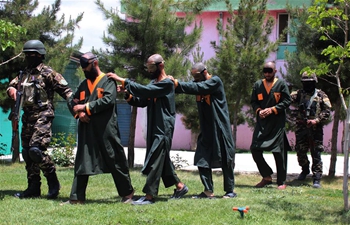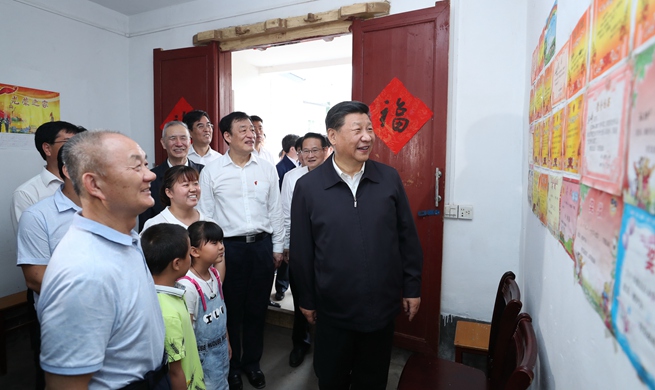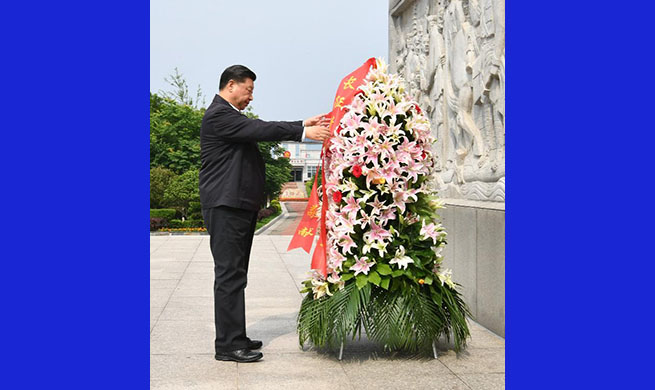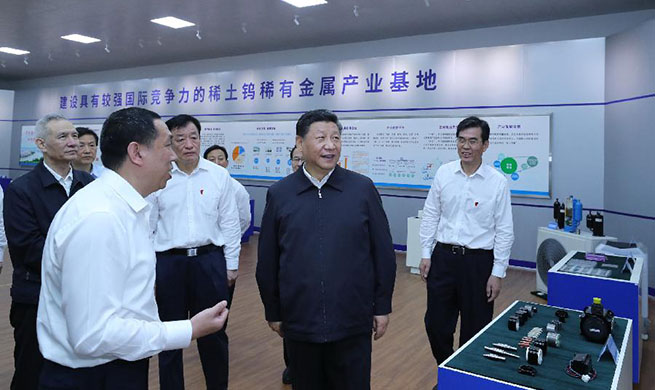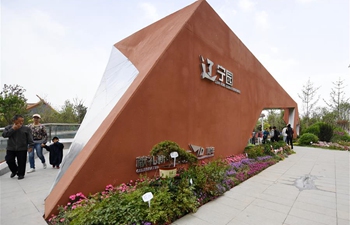by Keren Setton
JERUSALEM, May 21 (Xinhua) -- After decades of conflict and countless attempts at making peace between Israelis and Palestinians, the Peres Center for Peace and Innovation is trying to promote a different way of thought.
Through science and innovation, its chairman, Chemi Peres, son of the late Israeli leader Shimon Peres, is hoping to spread peace.
Inaugurated over a year ago, the renovated center offers a look into the past, present and future with the hopes of inspiring youth and world leaders to recognize the power of technology in bringing peace.
Located in Jaffa, an Israeli port city, visitors get a glimpse of the future by sitting in a time capsule and solving the problems humanity is expected to face in the coming decades.
When visiting the past, they see major historical landmarks together with Israeli innovations throughout the years. The exhibition of the present times showcases 45 different Israeli start-ups in different fields. It is dotted with archeological findings from the area showing ancient innovations.
"We believe that through innovation we can create a new tomorrow for the people of the region and thus achieve peace because the condition to achieve peace is that you have a shared tomorrow. If you have a shared tomorrow and you have something to look forward to then you can settle down and discuss the atrocities of yesterday," Chemi Peres told Xinhua in an exclusive interview.
The center aims to attract 200,000 visitors a year and thus spread its message. The tour of the new visitor's center can be done in four languages, one of them Chinese.
"We are blessed with the collaboration with China," Peres said, "It is a relationship I have been involved in for many many years."
It may be considered out of fashion amongst many in the area, but for Chemi Peres the only direction to look at is forward, with great optimism. His father, Shimon Peres, was one of Israel's founding fathers. He founded the peace center in 1996.
In the coming weeks, a new American peace plan is expected to be revealed. According to media reports, the U.S. administration led by President Donald Trump will first unveil the part of the plan which deals with financial issues. It is believed the focus of the whole plan will be based on an "economy first" approach - financial incentives for the Palestinians in return for concessions in their territorial demands. Palestinians have already said they will not accept the plan.
The Palestinians, who want territories which Israel currently controls, are steadfast in their approach that the thorny political matters need to be settled first.
"I think that on the Palestinian side there is skepticism or worryism that what we call economic peace will be installed instead of a political concession. For me that is a risk they have to take because we have to drive the wagon forward. We have to create jobs and opportunities and income and fight poverty and give opportunities and jobs for the young generation," Peres said.
The Palestinians are not the only ones skeptical of Trump's plans. The international community has been slow to adopt the "economy first" model when it comes to the decades-old conflict. It has been years since the sides have met at the negotiating table.
Peres says the center is not promoting any specific solution - but rather a way to look forward first and settle the troubled past later.
"It will reduce all the tensions and atrocities and allow us to settle down and get to a political solution at the end of the day," Peres told Xinhua.
In a time and a region where pessimism about peace prevails, the Peres Center stands in an attempt to change hearts and minds through pockets, wallets, science and innovation.
Peres remains an optimist throughout, with straightforward logic.
"I believe that there will be peace at the end of the day. People will live in peace just because wars do not make sense anymore. The reason for war which is greatness and power are making way to brain," he said.






